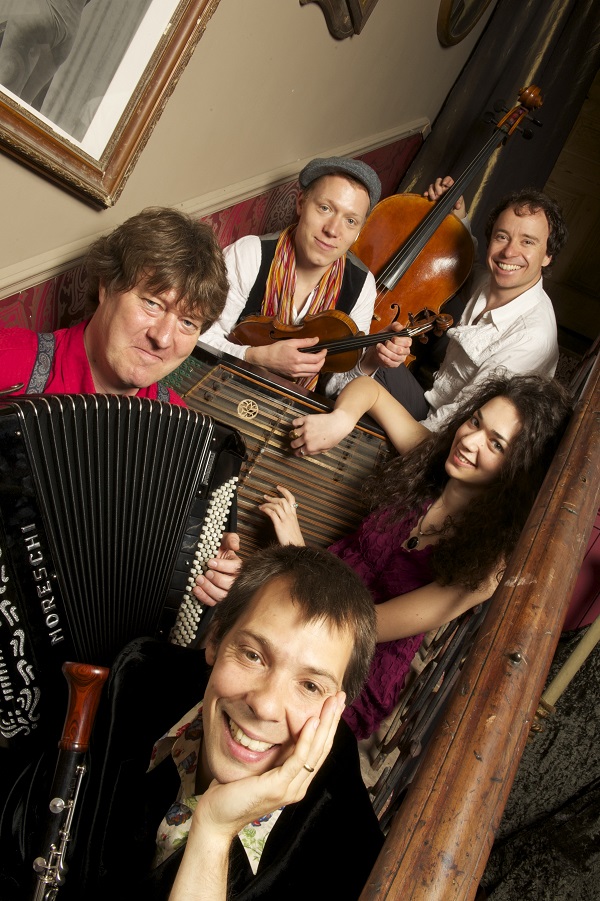RE:naissance: Festival under the influence | reviews, news & interviews
RE:naissance: Festival under the influence
RE:naissance: Festival under the influence
The stage is a world for the Kings Place Shakespeare festival

Shakespeare's ubiquitous “planetary influence” is well-documented. As Stephen Marche points out in How Shakespeare Changed Everything, not much from our sex lives to the assassination of Lincoln remains untouched. And, of course, there's the language. You may think that what you are reading has more rhyme than reason, be madness (though there is method in it) or amount to nothing more than a wild goose chase.
It's in our NLP, our very DNA. So, this year it’s Shakespeare's 450th birthday and I'm putting on a festival called RE:naissance at Kings Place. Shakespeare and Marlowe are there. As are alchemy, espionage, art and artists that knew no bounds, the world on a stage, great reckonings in little rooms.
Shakespeare settings (by Strauss and Rautavaara), a Shakespeare-inspired cello sonata with text woven into its fabric (James Francis Brown's Prospero's Isle) and a one-man Marlowe-inspired opera fantasy – Faustus in Omnibus by Stephen Deazley and Martin Riley – are just some of the goods on show. (Pictured below: ZRI, who will perform Brahms and the Gypsy. Photo by Manuel Harlan)
Beyond the words and the lives of these artists – who were men of many parts with none of those parts compromised – the festival is also influenced by a kind of Renaissance spirit. With provenance and a deep understanding of the classical past intact, it sets off for brave new worlds, undiscovered countries and the brightest heaven of invention. As we all know – courtesy again of the Bard – the golden age is before us, not behind us.
 My “classical music" persona turns to Shakespeare and theatre for insight, alternatives and answers. When the scene is feeling especially moribund, vacuum-packed and self-absorbed then I remind myself that Lear needs his Fool, Hamlet his Grave-diggers and Macbeth his Drunken Porter, that a fabulous night out of great art will be high, low, transcendent, bawdy, tragic, comic, historic, pastoral, pastoral-comical, historical-pastoral, tragical-historical, tragical-comical-historical-pastoral. That the world IS a stage and that therefore a stage – of any kind, concert hall or theatre – needs the world and people on it. Less so propriety and etiquette. As David Mamet says, “Propriety is all well and good in its place, but its place isn't the stage” (True and False).
My “classical music" persona turns to Shakespeare and theatre for insight, alternatives and answers. When the scene is feeling especially moribund, vacuum-packed and self-absorbed then I remind myself that Lear needs his Fool, Hamlet his Grave-diggers and Macbeth his Drunken Porter, that a fabulous night out of great art will be high, low, transcendent, bawdy, tragic, comic, historic, pastoral, pastoral-comical, historical-pastoral, tragical-historical, tragical-comical-historical-pastoral. That the world IS a stage and that therefore a stage – of any kind, concert hall or theatre – needs the world and people on it. Less so propriety and etiquette. As David Mamet says, “Propriety is all well and good in its place, but its place isn't the stage” (True and False).
RE:naissance also has its audience at the forefront of its mind. Personally, I've never been able to find the fourth wall and I happen to like live performance that crosses the footlights, knows it exists for one night only and performs like there's no tomorrow...and tomorrow...and tomorrow. Here's Mamet from True and False again (substitute “actor” with “musician”, “theatre” with “music”): “Respect for the audience is the foundation of all legitimate actor training – speak up, speak clearly, open yourself out, relax your body, find a simple objective; practice in these goals is practice in respect for the audience, and, without respect for the audience, there is no respect for the theatre; there is only self-absorption.” In classical music, the performer/audience contract can often be tinged with degrees of fear and loathing – and judgement – rather than respect.
Perhaps RE:naissance's greatest influence is the music itself and the amazing family (both literal and figurative) of performers gathering to make it. The festival is brimming with music and works made for people, made for unforgettable nights out, compelling and enjoyable to groundlings and royalty alike.
Classical music has talked of finding a new audience for a long time. Shakespeare said, “Talking isn't doing. It is a kind of good deed to say well; and yet words are not deeds.” Adventures do occur but strike me as the exception rather than the rule. Einstein said, "Insanity: doing the same thing over and over again and expecting different results."
The short and the long of it is, RE:naissance has made boldness its friend, gone to its bosom, knocked and asked the heart what it doth know, is walking the talk and doing a different thing.
Share this article
The future of Arts Journalism
You can stop theartsdesk.com closing!
We urgently need financing to survive. Our fundraising drive has thus far raised £49,000 but we need to reach £100,000 or we will be forced to close. Please contribute here: https://gofund.me/c3f6033d
And if you can forward this information to anyone who might assist, we’d be grateful.

Subscribe to theartsdesk.com
Thank you for continuing to read our work on theartsdesk.com. For unlimited access to every article in its entirety, including our archive of more than 15,000 pieces, we're asking for £5 per month or £40 per year. We feel it's a very good deal, and hope you do too.
To take a subscription now simply click here.
And if you're looking for that extra gift for a friend or family member, why not treat them to a theartsdesk.com gift subscription?

Add comment